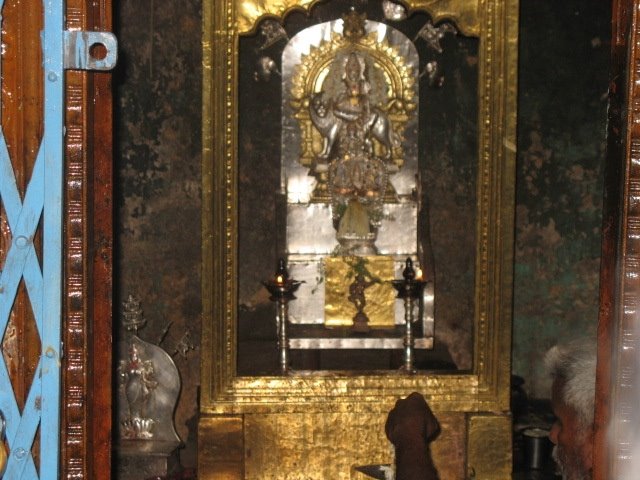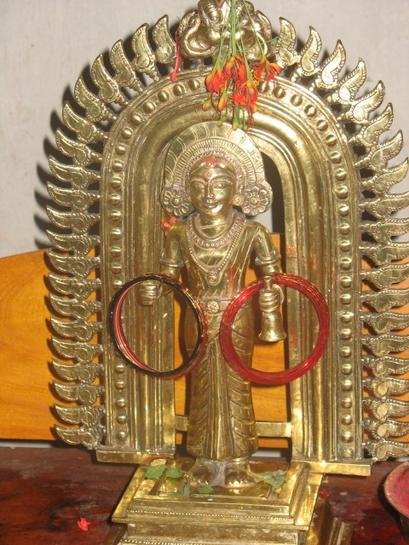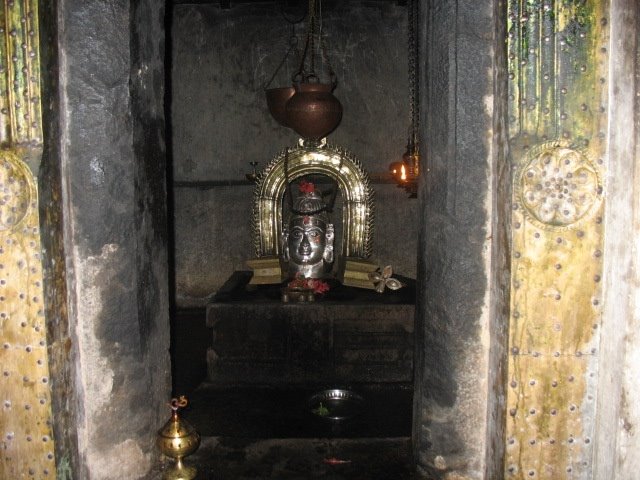
Let’s go back in time, to a glimpse into the sequence of events culminating in Sanjay Dutt's conviction of six years rigorous imprisonment by the Terrorist and Disruptive Activities (Prevention) Act TADA Court, special judge P D Kode.
March 12, 199 3 a series of bomb blasts rocked Mumbai city, killing 257 people and injuring around 713. Nearly a month after the blasts on, film producers/ video owners Sameer Hingora and Hanif Kadawala were arrested. They disclosed to the police that film star Sanjay Dutt also possessesed AK-56 rifles. After this revelation CBI filed a charge-sheet against Sanjay Dutt alleging that gangster Abu Salem and his men visited Dutt in January 1993.
3 a series of bomb blasts rocked Mumbai city, killing 257 people and injuring around 713. Nearly a month after the blasts on, film producers/ video owners Sameer Hingora and Hanif Kadawala were arrested. They disclosed to the police that film star Sanjay Dutt also possessesed AK-56 rifles. After this revelation CBI filed a charge-sheet against Sanjay Dutt alleging that gangster Abu Salem and his men visited Dutt in January 1993.
The charge-sheet states that Abu Salem was brought to Dutt's residence accompanied by Magnum video owner Sameer Hingora and motor-training school owner Ibrahim Musa on instructions of underworld don Dawood Ibrahim's brother Annes to deliver the weapons.
The next morning the consignment arrived and they gave him three AK-56 rifles, 25 hand grenades, one 9 mm pistol and cartridges. Dutt however returned the AK-56 rifles, hand grenades and cartridges to Hanif and Samir but kept one AK-56 rifle with himself. The rifle and cartridges allegedly formed part of the consignment, which was smuggled into India at Dighi Port on 9 January, 1993.
On learning that Mumbai police were looking to question Sanjay Dutt, his father Sunil Dutt asked him to immediately return from Mauritius, where he was shooting for a film. As soon as Dutt arrived from Mauritius, police arrested him stating that the AK-56 found in his house, was from the consignment of arms smuggled into India before the blasts.
Dutt confessed to the police that while he was in Mauritius for shooting, he had instructed his friends to destroy the weapons. The rifle was then accordingly destroyed by his friends Yusuf Nullawalla, Kersi Adjenia, Rusi Mulla and Ajay Marwah. Sanjay Dutt however denied the charges that he was involved in the larger conspiracy. Although at first Dutt had admitted to the charges of owning the weapons but later he retracted the confession.
In May, 1993, Dutt was released on bail. In July 4, 1994, Dutt’s bail was cancelled and he was re-arrested on 19 April, 1993 (nearly a month after the Mumbai blasts). After spending nearly 16 months in Arthur Road Jail in Mumbai, Dutt was again released on bail on Oct 16, 1995. In the year 2001 Dutt faced several queries from the court spread over four days, on the subject of his possessing the AK-56 rifle. To which Dutt flatly denied having a connection with any such event and even denied having met Abu Salem and others.
However, in 2002, the Mumbai police tapped alleged Dutt's conversation with ga ngster Chhota Shakeel. The conversation had references to the actor having bought a T-shirt for him, from Dubai. In fact after this incident the Shiv Sena-BJP combine in Maharashtra created a furore in the State legislature over the Bollywood star's alleged taped conversation with underworld don Chhota Shakeel. In the year 2003, Dutt informed the court that he did not know about Pakistan-based gangster Chhota Shakeel. Court exempted Dutt from personal appearance till June-end, stating he had gone abroad for stage shows with the court's permission.
ngster Chhota Shakeel. The conversation had references to the actor having bought a T-shirt for him, from Dubai. In fact after this incident the Shiv Sena-BJP combine in Maharashtra created a furore in the State legislature over the Bollywood star's alleged taped conversation with underworld don Chhota Shakeel. In the year 2003, Dutt informed the court that he did not know about Pakistan-based gangster Chhota Shakeel. Court exempted Dutt from personal appearance till June-end, stating he had gone abroad for stage shows with the court's permission.
After this Dutt’s bail was extended a number of times. On 28 November 2006, the Special TADA court found actor Sanjay Dutt guilty under the Arms Act of possessing an illegal weapon. He was cleared, however, of the charges of terrorism and conspiracy by the Judge Kode who said in his ruling in the open court "During my reasoning I have not found him (Sanjay) to be a terrorist."
Dutt’s plea for sometime for surrender was rejected by the judge. Sanjay Dutt’s lawyer, Mr Satish Maneshinde, however, said the actor would appeal against his sentence in the Supreme Court. On August 2, 2007, Sanjay Dutt was shifted from Arthur Road jail in Mumbai to the Yerwada Jail in Pune, where Dutt will carry out the rest of his sentence.
March 12, 199
 3 a series of bomb blasts rocked Mumbai city, killing 257 people and injuring around 713. Nearly a month after the blasts on, film producers/ video owners Sameer Hingora and Hanif Kadawala were arrested. They disclosed to the police that film star Sanjay Dutt also possessesed AK-56 rifles. After this revelation CBI filed a charge-sheet against Sanjay Dutt alleging that gangster Abu Salem and his men visited Dutt in January 1993.
3 a series of bomb blasts rocked Mumbai city, killing 257 people and injuring around 713. Nearly a month after the blasts on, film producers/ video owners Sameer Hingora and Hanif Kadawala were arrested. They disclosed to the police that film star Sanjay Dutt also possessesed AK-56 rifles. After this revelation CBI filed a charge-sheet against Sanjay Dutt alleging that gangster Abu Salem and his men visited Dutt in January 1993.The charge-sheet states that Abu Salem was brought to Dutt's residence accompanied by Magnum video owner Sameer Hingora and motor-training school owner Ibrahim Musa on instructions of underworld don Dawood Ibrahim's brother Annes to deliver the weapons.
The next morning the consignment arrived and they gave him three AK-56 rifles, 25 hand grenades, one 9 mm pistol and cartridges. Dutt however returned the AK-56 rifles, hand grenades and cartridges to Hanif and Samir but kept one AK-56 rifle with himself. The rifle and cartridges allegedly formed part of the consignment, which was smuggled into India at Dighi Port on 9 January, 1993.
On learning that Mumbai police were looking to question Sanjay Dutt, his father Sunil Dutt asked him to immediately return from Mauritius, where he was shooting for a film. As soon as Dutt arrived from Mauritius, police arrested him stating that the AK-56 found in his house, was from the consignment of arms smuggled into India before the blasts.
Dutt confessed to the police that while he was in Mauritius for shooting, he had instructed his friends to destroy the weapons. The rifle was then accordingly destroyed by his friends Yusuf Nullawalla, Kersi Adjenia, Rusi Mulla and Ajay Marwah. Sanjay Dutt however denied the charges that he was involved in the larger conspiracy. Although at first Dutt had admitted to the charges of owning the weapons but later he retracted the confession.
In May, 1993, Dutt was released on bail. In July 4, 1994, Dutt’s bail was cancelled and he was re-arrested on 19 April, 1993 (nearly a month after the Mumbai blasts). After spending nearly 16 months in Arthur Road Jail in Mumbai, Dutt was again released on bail on Oct 16, 1995. In the year 2001 Dutt faced several queries from the court spread over four days, on the subject of his possessing the AK-56 rifle. To which Dutt flatly denied having a connection with any such event and even denied having met Abu Salem and others.
However, in 2002, the Mumbai police tapped alleged Dutt's conversation with ga
 ngster Chhota Shakeel. The conversation had references to the actor having bought a T-shirt for him, from Dubai. In fact after this incident the Shiv Sena-BJP combine in Maharashtra created a furore in the State legislature over the Bollywood star's alleged taped conversation with underworld don Chhota Shakeel. In the year 2003, Dutt informed the court that he did not know about Pakistan-based gangster Chhota Shakeel. Court exempted Dutt from personal appearance till June-end, stating he had gone abroad for stage shows with the court's permission.
ngster Chhota Shakeel. The conversation had references to the actor having bought a T-shirt for him, from Dubai. In fact after this incident the Shiv Sena-BJP combine in Maharashtra created a furore in the State legislature over the Bollywood star's alleged taped conversation with underworld don Chhota Shakeel. In the year 2003, Dutt informed the court that he did not know about Pakistan-based gangster Chhota Shakeel. Court exempted Dutt from personal appearance till June-end, stating he had gone abroad for stage shows with the court's permission.After this Dutt’s bail was extended a number of times. On 28 November 2006, the Special TADA court found actor Sanjay Dutt guilty under the Arms Act of possessing an illegal weapon. He was cleared, however, of the charges of terrorism and conspiracy by the Judge Kode who said in his ruling in the open court "During my reasoning I have not found him (Sanjay) to be a terrorist."
Finally on 31 July, 2007 Sanjay Dutt was sentenced to 6 years rigorous imprisonment by Judge Kode. His aide Rusi Mulla, was however, awarded probation and is under observation for one year. Sanjay Dutt was also fined Rs. 25,000 and his probation plea was rejected. The 16 months that Dutt has already served in jail will be deducted from the sentence.
Dutt’s plea for sometime for surrender was rejected by the judge. Sanjay Dutt’s lawyer, Mr Satish Maneshinde, however, said the actor would appeal against his sentence in the Supreme Court. On August 2, 2007, Sanjay Dutt was shifted from Arthur Road jail in Mumbai to the Yerwada Jail in Pune, where Dutt will carry out the rest of his sentence.











1 comment:
Hi Nina,
Nice reading your article too. Will keep looking for more.
& thanks for your comments and for going through my blog.
Nice meeting you,
Best regards, Anuji
Post a Comment